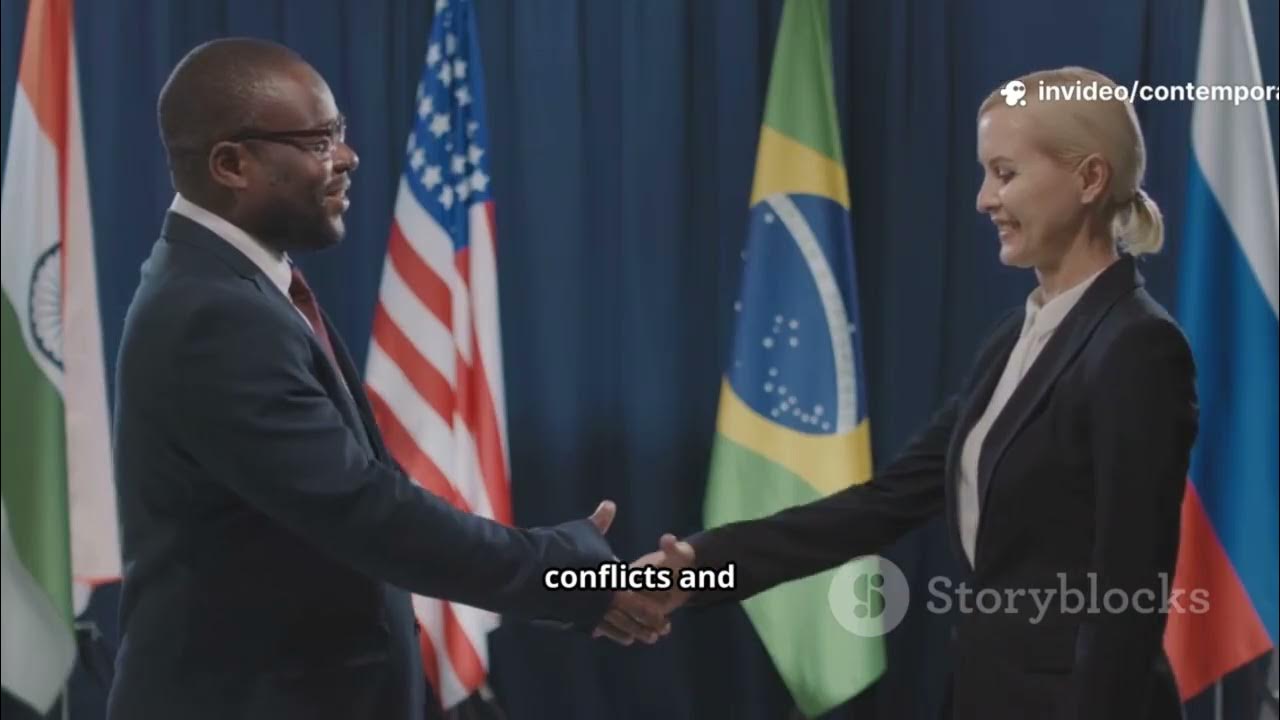We're Living In A Dystopian Movie..
Summary
TLDRThis script delves into the rising popularity of dystopian media and its relevance to our world today. By analyzing works like *Children of Men*, *Blade Runner 2049*, and *1984*, the video highlights how dystopian stories magnify societal issues, from technological abuse to population collapse. Despite the bleakness depicted, these narratives often explore themes of hope and resilience. The video argues that while our world reflects dystopian qualities, it is too complex for any one issue to dominate entirely, and the human capacity for hope and change persists even in the face of societal challenges.
Takeaways
- 😀 Dystopian media often exaggerates real-world problems, offering a lens through which society can process fears about the future.
- 😀 A dystopia is characterized by suffering, inequality, and societal breakdown, presenting a worst-case scenario for humanity's trajectory.
- 😀 Technologies like AI and surveillance can be both beneficial and potentially harmful, contributing to inequality and the centralization of power.
- 😀 The rise of authoritarianism and economic instability are key themes in both dystopian media and contemporary society.
- 😀 Language is a powerful tool for controlling thought and society, as demonstrated by Orwell's *1984* and the concept of Newspeak.
- 😀 The manipulation of language, whether through censorship or selective word use, is a current concern, particularly in social media and corporate media platforms.
- 😀 Dystopian stories often depict societies where hope exists in hidden or marginalized forms, suggesting that positive change can still be possible.
- 😀 The theme of hope persists in even the bleakest dystopian scenarios, indicating that humanity's resilience prevents total societal collapse.
- 😀 Films like *Children of Men* highlight how societal collapse could be triggered by issues like population decline, emphasizing the role of hope in survival and progress.
- 😀 Despite the increasing prevalence of dystopian qualities in the real world, no single issue or problem has yet fully dominated society, maintaining room for complexity and change.
Q & A
What is the main theme of dystopian media explored in the script?
-The main theme explored is the reflection of real-world anxieties in dystopian media, particularly the societal issues arising from technological advancements, authoritarian control, and social inequality. These stories often exaggerate contemporary fears and offer a way to explore potential futures shaped by these problems.
How does the script relate dystopian stories to real-world issues?
-The script connects dystopian stories to real-world issues like the misuse of technology, the rise of surveillance, authoritarianism, and social inequality. It suggests that dystopian media reflects our current fears about the future, with many aspects of these fictional worlds mirroring societal challenges in today's world.
What role does language play in controlling society, according to the script?
-Language is used as a tool of control in dystopian societies, as seen in Orwell’s *1984*. The creation of a language like Newspeak, designed to limit thought and suppress rebellion, serves as an example of how controlling language can restrict people's ability to think critically and oppose authority.
What is the significance of hope in dystopian stories, as discussed in the script?
-Hope remains a crucial element in dystopian stories, even in bleak settings. While many dystopian narratives, like *1984*, may end in despair, there is often a suppressed, underlying sense of hope that persists. Works like *Children of Men* show that despite overwhelming odds, human resilience and hope can survive even in the most desperate situations.
How does the script explain the popularity of dystopian media in modern society?
-Dystopian media has gained popularity due to its ability to reflect and exaggerate the growing concerns of modern society, such as technological control, environmental degradation, and political oppression. These stories allow people to confront and process these issues in a more dramatic and engaging way.
What philosophical theories are referenced in the script in relation to dystopia?
-The script references philosophical theories such as Plato’s ideal society, Marx’s vision of a communist utopia, and Hegel’s view of historical progress. These ideas are used to show how the pursuit of a perfect society can lead to oppressive dystopian regimes, as seen in both historical and fictional contexts.
In what ways does the script suggest that language is being manipulated in today’s world?
-The script suggests that language is being manipulated today, particularly through social media platforms like YouTube, where certain words and topics are censored or restricted. This manipulation of language limits the ways in which people can discuss issues, ensuring that only sanitized, corporate-approved narratives are allowed to thrive.
What does the script say about the potential for society to become a true dystopia?
-The script acknowledges that while many aspects of society today resemble a dystopia—such as rising surveillance, inequality, and political control—society is too complex for a single dystopian vision to dominate entirely. There will always be elements of hope, creativity, and human connection, which prevents a true, totalitarian dystopia from fully taking hold.
How does the script explore the relationship between dystopia and technology?
-The script explores how technological advances can lead to dystopian outcomes when misused. It references works like *Blade Runner 2049*, where technological progress exacerbates inequality and alienation, showing that while technology holds potential for improvement, it can also be a tool for societal control and exploitation.
How does the script highlight the tension between individual freedom and societal control?
-The script emphasizes the conflict between individual freedom and societal control through examples from dystopian literature, such as *1984* and *Brave New World*. These works depict societies where personal freedom is suppressed in favor of maintaining control, and where dissent is eliminated by controlling language, thought, and behavior.
Outlines

このセクションは有料ユーザー限定です。 アクセスするには、アップグレードをお願いします。
今すぐアップグレードMindmap

このセクションは有料ユーザー限定です。 アクセスするには、アップグレードをお願いします。
今すぐアップグレードKeywords

このセクションは有料ユーザー限定です。 アクセスするには、アップグレードをお願いします。
今すぐアップグレードHighlights

このセクションは有料ユーザー限定です。 アクセスするには、アップグレードをお願いします。
今すぐアップグレードTranscripts

このセクションは有料ユーザー限定です。 アクセスするには、アップグレードをお願いします。
今すぐアップグレード5.0 / 5 (0 votes)






